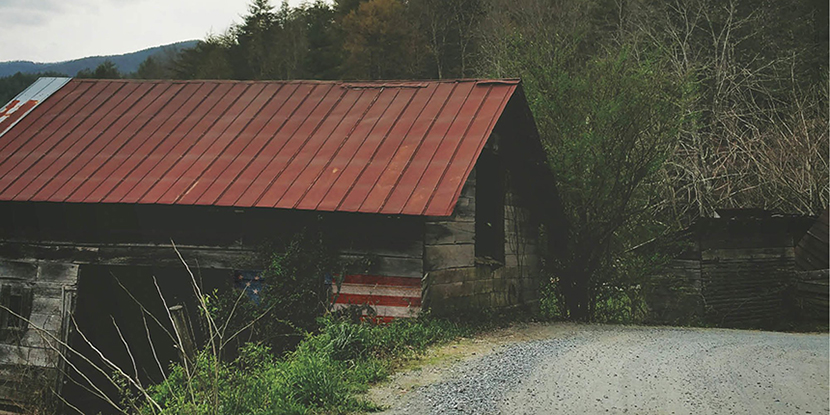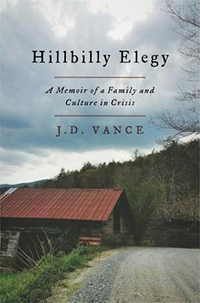Circle Reads: Hillbilly Elegy: A Memoir of a Family and Culture in Crisis

 On Thursday evening, April 13, forty-five Circle members gathered to discuss J.D. Vance’s recent memoir, Hillbilly Elegy: A Memoir of a Family and Culture in Crisis.
On Thursday evening, April 13, forty-five Circle members gathered to discuss J.D. Vance’s recent memoir, Hillbilly Elegy: A Memoir of a Family and Culture in Crisis.
After a short social time, we divided into six small groups for thirty-five minutes of discussion and reflection, followed by a brief general consideration of the issues raised in the smaller groups. Chris West, a Baltimore lawyer with Semmes, Bowen & Semmes who represents an area of Baltimore County in Maryland House of Delegates (and is also the husband of Circle member Anne West), then spoke to us about the book’s applicability to Western Maryland and to areas of our city. He also discussed some of the larger economic and political issues raised by the memoir.
Hillbilly Elegy has had phenomenal popularity, surprising the author and the critics. In his memoir Vance not only tells stories of a difficult youth but also raises important questions about the causes of economic insecurity and cultural dysfunction. The author was raised in Middletown, Ohio, a decaying steel town filled with Appalachian migrants and “hemorrhaging jobs and hope.” He calls himself a hillbilly and notes that poverty has been his family’s tradition, brought to Ohio from the “holler” in Jackson, Kentucky. Vance’s family was torn by domestic violence, addiction, and instability, but also marked by the love and determination of the grandparents who raised him. After high school the author enlisted in the Marine Corps, which he credits with helping him gain focus and purpose in his life. He went on to graduate from Ohio State University and Yale Law School and then joined a venture capitalist firm in California. The book has brought him national attention. Recently Vance has announced plans to return to Ohio to work on addressing the opioid crisis.
The book’s popularity is in part attributable to the recent election and changing voting patterns. According to the New York Times, Vance offers “a compassionate, discerning sociological analysis of the white underclass that has helped drive the politics of rebellion, particularly the ascent of Donald Trump Combining thoughtful inquiry with first hand experience, Mr. Vance has inadvertently provided a civilized reference guide for an uncivilized election, and he’s done so in a vocabulary intelligible to both Democrats and Republicans.” At our meeting Chris West helped us understand how voting patterns have changed dramatically in the past few decades in Appalachia, including Western Maryland. He noted the disparity between per capita income in eastern Maryland counties and those in Western Maryland, where per capita income is $21,000 and $25,000 in Allegheny and Garrett counties respectively. Both his remarks and the discussion in small groups drew our attention to similarities between these rural counties and the social and economic patterns in areas of Baltimore City. Issues of domestic violence, drug addiction, unemployment, lack of education, poverty, and alienation are similar in Vance’s Middletown, Ohio, Jackson, Kentucky, and in Western Maryland and Baltimore City.
One of the challenging questions raised by the memoir is the role of the federal government in addressing the economic and social crisis the book outlines. Vance believes that the welfare state has led to patterns of “learned helplessness.” He emphasizes tough love and personal responsibility, but at the same time he is keenly aware of the good luck he had in the support of a series of mentors and most especially his supportive grandmother, who gave him unconditional love, vision, and discipline. What about children who do not have such good luck? Can bootstrap solutions meet the cultural and social crisis that Vance describes? Ultimately Vance asks this question: “How much of our lives, good and bad, should we credit to our personal decisions, and how much is just the inheritance of our culture, our families, and our parents who have failed their children?” These are central questions for us as we confront our mission in the Women’s Giving Circle.